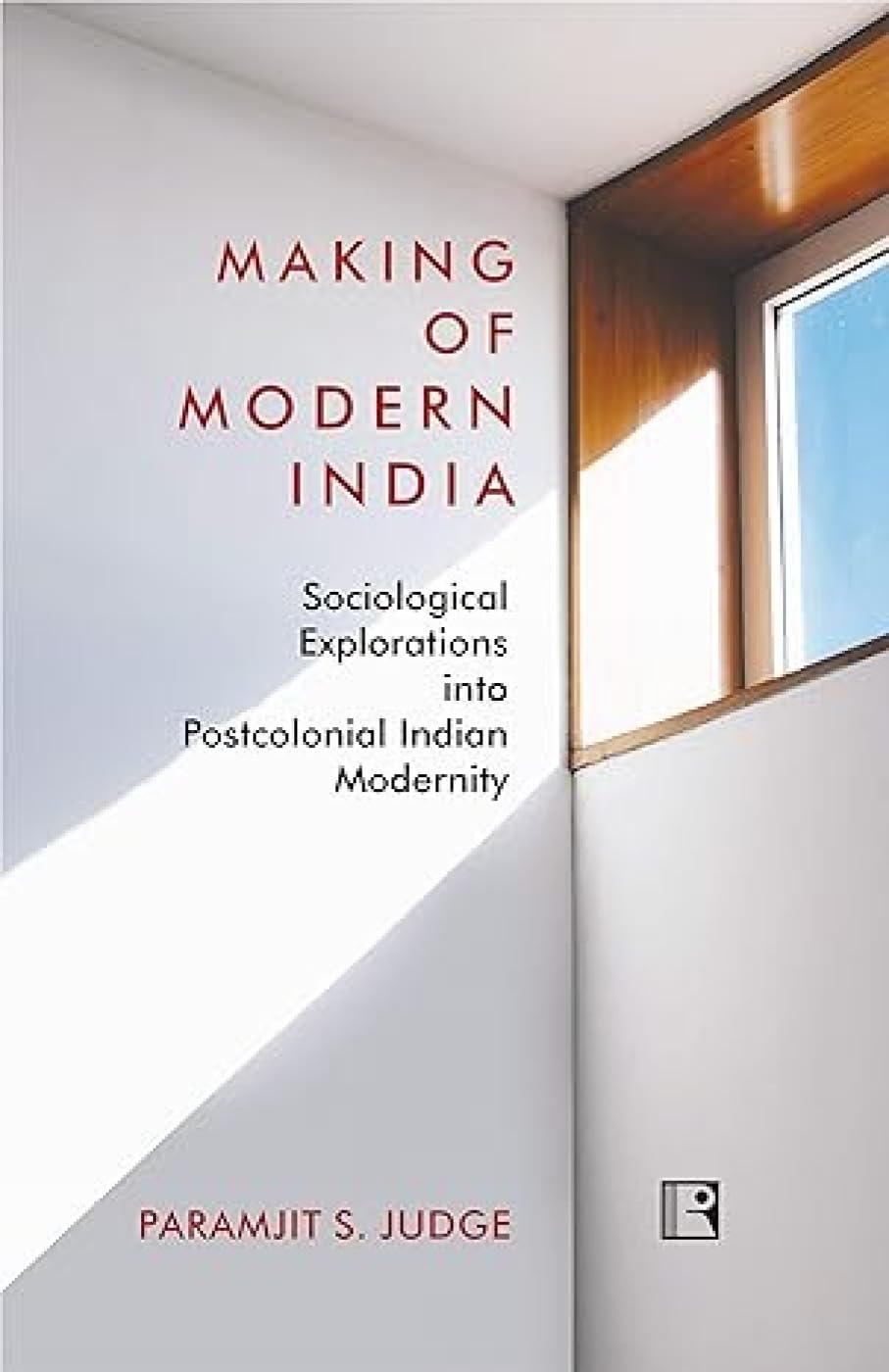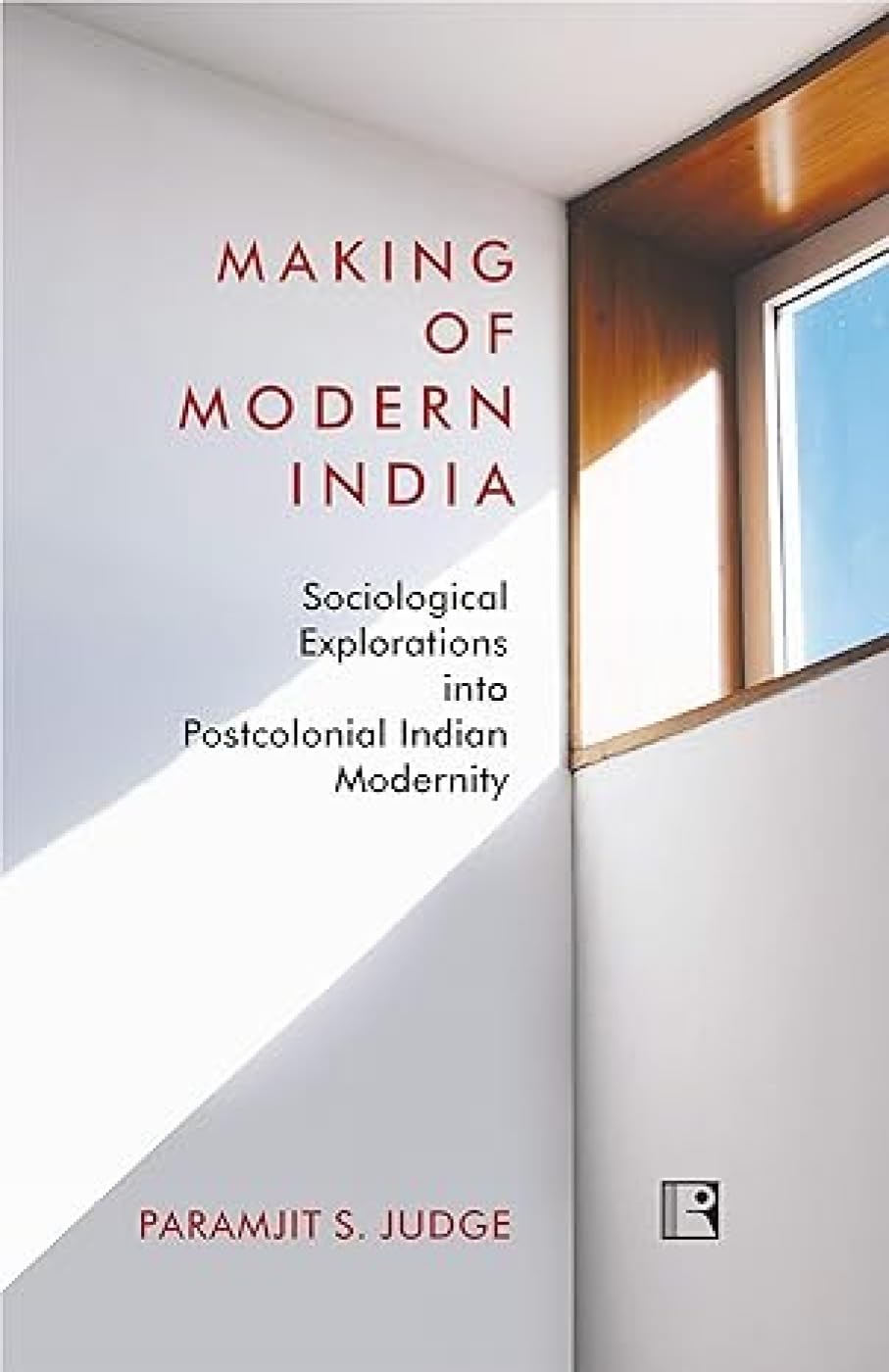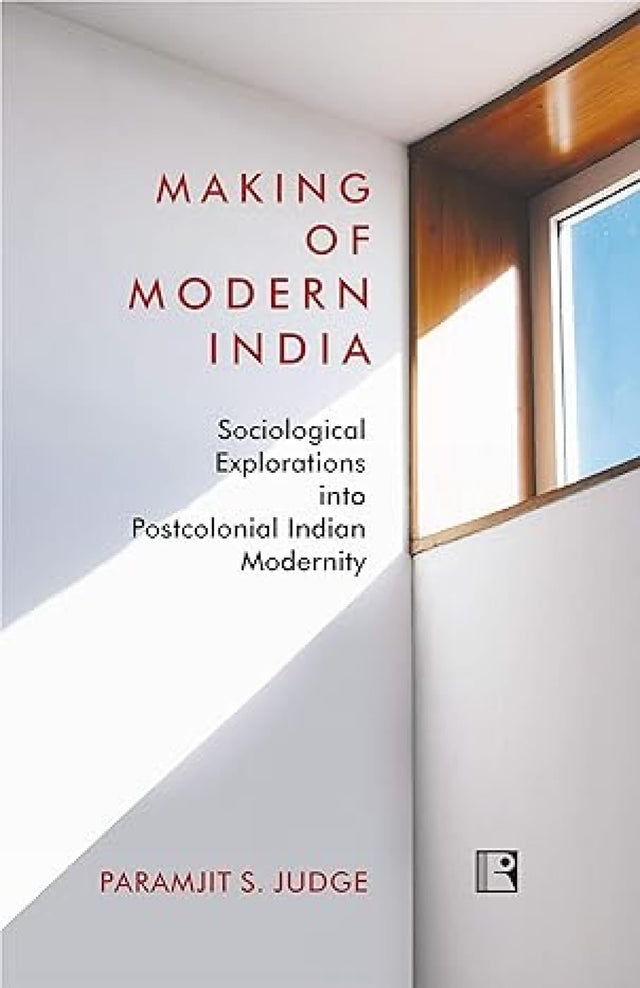MAKING OF MODERN INDIA:: Sociological Explorations into Postcolonial Indian Modernity
MAKING OF MODERN INDIA:: Sociological Explorations into Postcolonial Indian Modernity is backordered and will ship as soon as it is back in stock.
Couldn't load pickup availability
Genuine Products Guarantee
Genuine Products Guarantee
We guarantee 100% genuine products, and if proven otherwise, we will compensate you with 10 times the product's cost.
Delivery and Shipping
Delivery and Shipping
Products are generally ready for dispatch within 1 day and typically reach you in 3 to 5 days.
Book Details
-
Publisher: Rawat Publications
-
Author: Paramjit S. Judge
-
Language: English
-
Edition: 2019
-
ISBN: 9788131610084
-
Pages: 248
-
Cover: Hardcover
-
Dimensions: 8.7 x 5.8 x 0.9 inches
About the Book
Making of Modern India: Sociological Explorations into Postcolonial Indian Modernity delves into the socio-political landscape of post-independence India, aiming to understand how the country's founding leaders envisioned and worked toward the creation of a modern society. The work focuses on how these leaders sought to break free from the colonial past while blending indigenous practices with Western ideals of equality, justice, freedom, and socialism.
In the aftermath of independence, India was faced with numerous challenges, including widespread poverty, illiteracy, and rural underdevelopment, while the urban centers remained the bastions of colonial power. Adding to these obstacles was the profound socio-cultural diversity of the nation. Despite these hurdles, the members of the Constituent Assembly—largely composed of Congress leaders, many of whom were freedom fighters under Gandhi's influence—embarked on the monumental task of drafting a Constitution that could resolve these contradictions and steer the country toward development and nation-building.
The book explores the contrasting visions of key members of the Constituent Assembly, some of whom believed that blending India's ancient traditions with Western modernity could lead to a prosperous future. Others, notably those advocating for socialism, viewed it as the only solution for India's underdeveloped, rural masses.
Through critical analysis, Making of Modern India highlights the paradoxes and divergent perspectives that shaped the creation of modern India. It is a thought-provoking exploration of the intellectual debates that guided India's postcolonial journey and remains essential reading for anyone interested in the sociological and political history of independent India.
Contents
-
Constituent Assembly and Agenda for Modern India
-
Competing Modernities: Ambedkar and Gandhians
-
Minorities and Political Reservations
-
Discoursing the Partitioned Voices: Punjab and Kashmir
-
Property Acquisition: In the Name of Community
-
Fifteen Years that Never Ended: The Language Debate
-
Elusive Consensus: The Sikh Issue
-
Unrevised Perspectives: Third Reading
About the Author
Paramjit S. Judge is a Professor of Sociology at Guru Nanak Dev University, Amritsar. His research focuses on social movements and social exclusion. He has served as the Dr. B.R. Ambedkar National Fellow (for social justice) at the Indian Council of Social Sciences Research, New Delhi. Currently, he is the Managing Editor of Sociological Bulletin, the journal of the Indian Sociological Society. In addition to his academic work, Judge is also a renowned Punjabi novelist.





